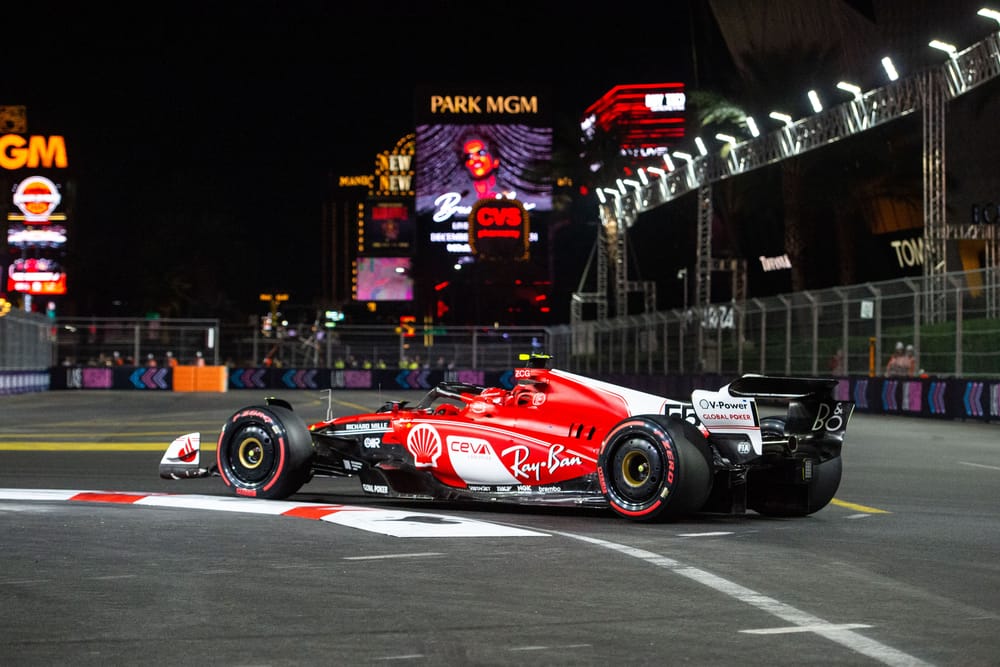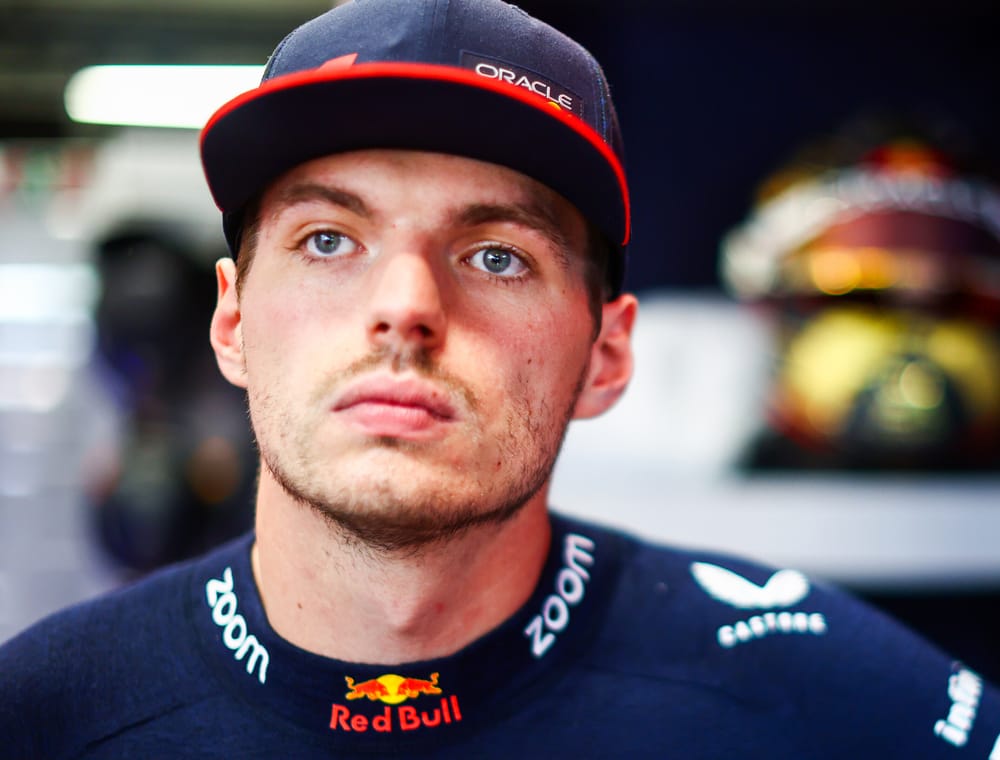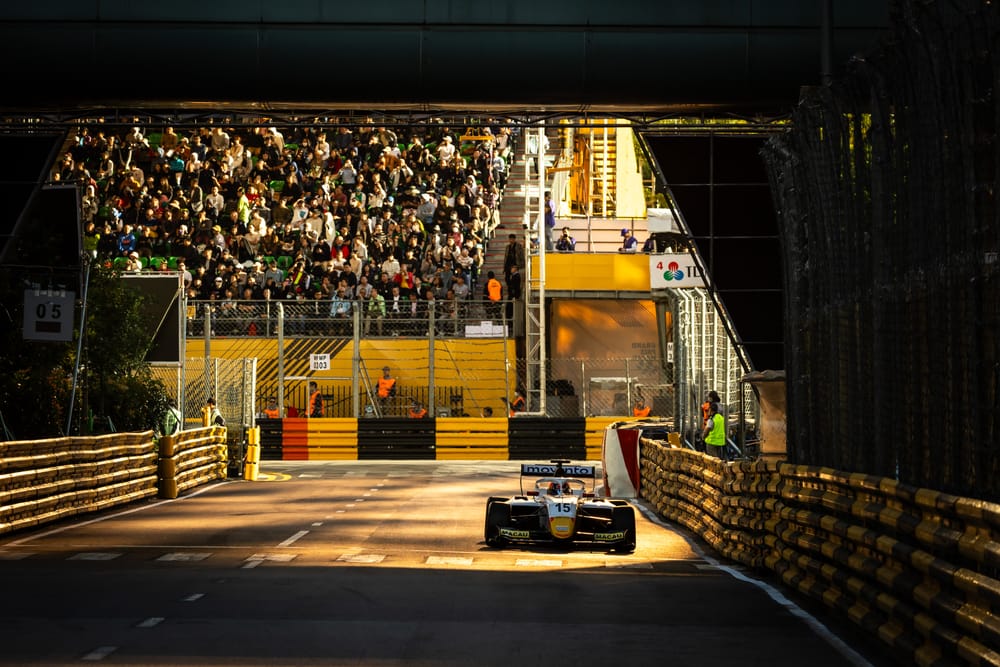Up Next

Ferrari is likely still reeling from what it feels was a “stupid” Formula 1 rule that cost it a chance to overhaul Mercedes for second in the constructors’ championship before the Abu Dhabi finale – but how can it get payback?
Ferrari's anger
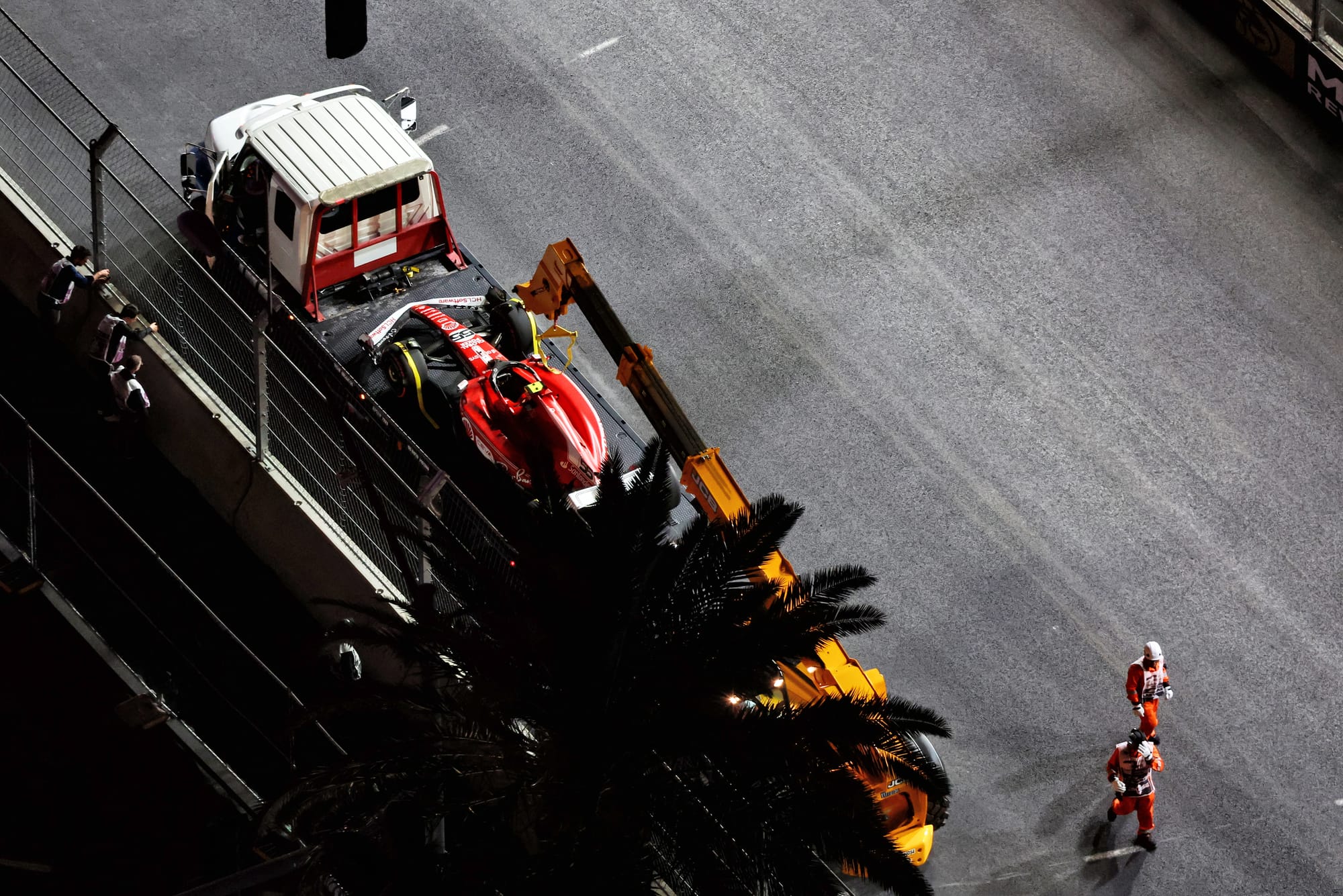
Ferrari's Las Vegas Grand Prix got off to the worst possible start last Thursday night when Sainz struck a loose water valve inspection cover in FP1, which badly damaged his car’s floor, chassis, seat and engine.
Ferrari had to give Sainz a new battery among his replacement engine parts, which triggered an automatic 10-place drop because doing so exceeded his seasonal allocation for that component for the first time.
Even the stewards knew this was massively harsh, acknowledging “the damage was caused by highly unusual external circumstances” and admitting it would have waived the penalty if only they had a legitimate way to do so.
Ferrari’s Fred Vasseur was furious in the aftermath, calling it “unacceptable”, and his frustration still lingered after the grand prix.
“Considering we missed FP1, that we had a couple of millions of damage, the mechanics worked like hell to come back and so, it was not too stupid to consider the case of force majeure,” he said in the early hours of Sunday morning.
Gary Anderson's verdict
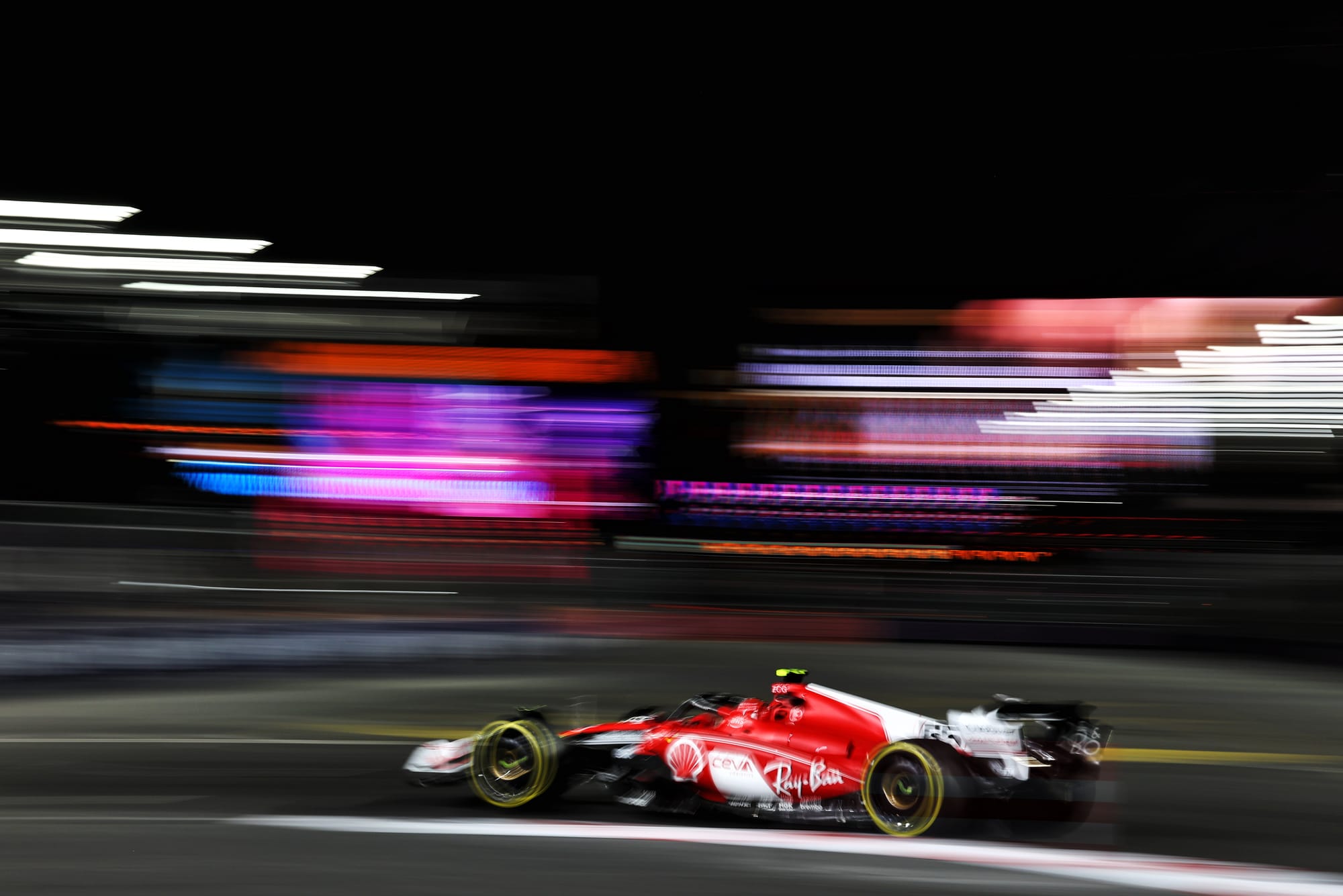
I have sympathy with Sainz and Ferrari for the unfairness of the penalty. The water valve cover damaging the car and power unit components was nothing to do with anything the driver or team did and was entirely down to the circuit not being in a fit condition, so why should they pay the price for it?
You can't turn the clock back as I found out when one of my F3 cars was destroyed in Macau in 1984 when a 40cm x 40cm manhole cover tore the bottom out of the chassis and was bent double when it got to the front of the engine. It basically exploded mid-track.
It was no surprise that the driver Claudio Langes - who saw nothing on the track - was totally surprised when the car simply exploded around him. At least then the race and circuit organisers paid me something like £3500 in compensation.
The money side is less of a concern as it’s so close to the end of the season that it won’t have such a big impact on spending given Ferrari can’t build a new monocoque overnight, but the sporting damage is significant. Had Sainz started in second place, the race at the front would have been very different and maybe Ferrari could have won by being able to deploy two cars against Red Bull.
The FIA stewards should not be put in a position where they say they want to do something but because of the rules in place they can’t. They should be the arbiters of what is or isn’t allowed and the cause of the damage was so obvious that it should have been changed.
So a way has to be found to allow the stewards to judge the situation how they see it and not stopped from doing so by the rules. That means giving the stewards the necessary authority to do their jobs properly.
It’s in everybody’s interest for this system to be adopted because while what happened is a rare occurrence, this sort of thing does happen every now and again. So why not allow it?
Yes, teams will try to argue force majeure for situations that are not outside of their control, but then it’s just down to the stewards to say no. F1 may be big business, but it’s also a sport and it’s right that any team in this position be given a fair sporting chance.
Ferrari's payback and precedents
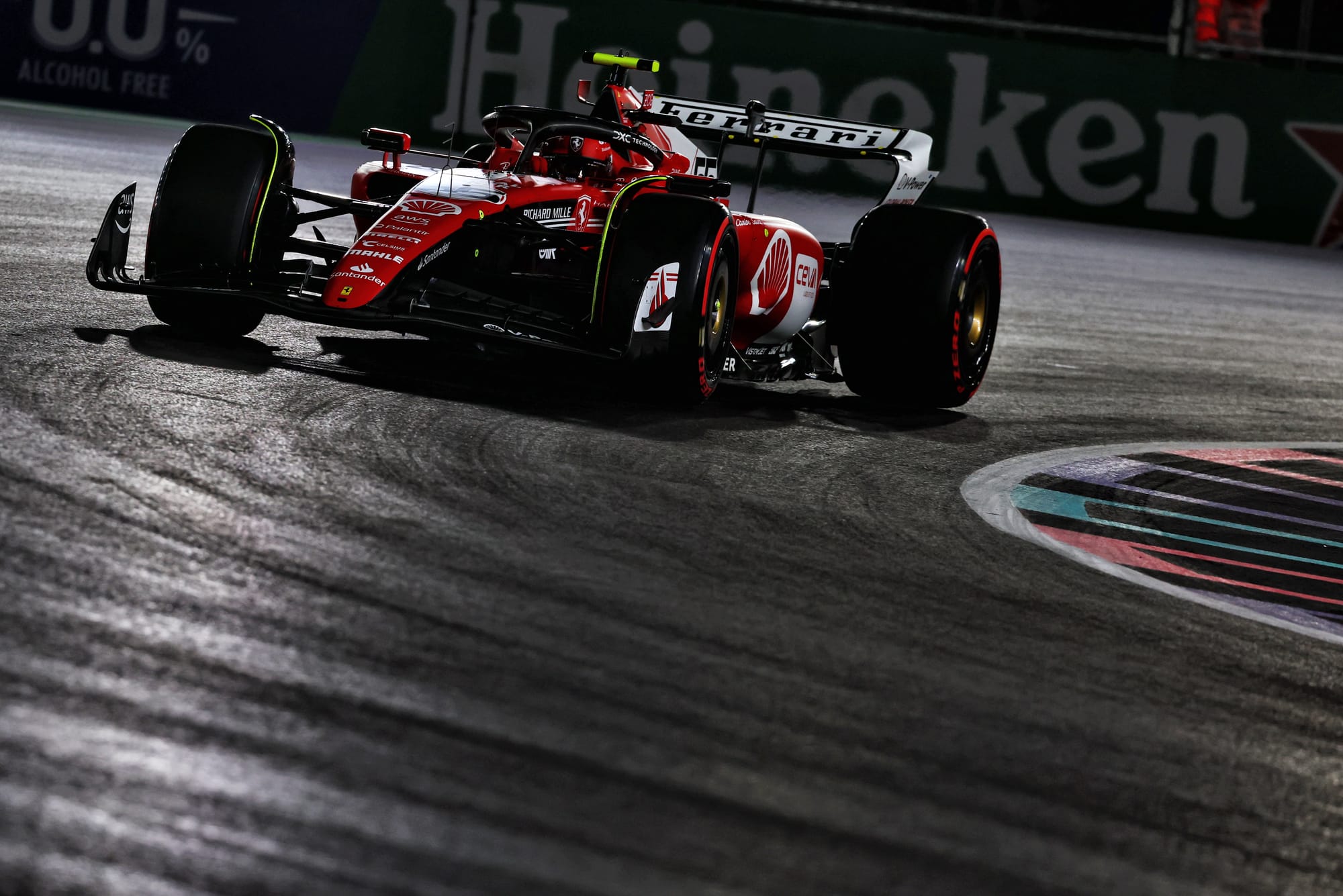
As Gary notes, starting first and second on the grid would have given Ferrari a better shot at succeeding in a race Charles Leclerc came close to winning while fighting the Red Bulls single-handedly.
And given Ferrari was clearly quicker than Mercedes this weekend, Sainz’s penalty did in hindsight stop Ferrari from moving into second in the championship. It's still four points behind Mercedes.
But there was a silver lining in the form of Sainz beating both Mercedes drivers anyway as part of his recovery drive to sixth.
It has set up a final race showdown in Abu Dhabi for a very valuable position in terms of prize money and competitive kudos. That’s payback of sorts but there could be more coming.
Vasseur said “a fortune is a good estimation” of the cost of the damage sustained in Sainz’s crash, and separately suggested it was worth a couple of million euros.
This will have to come out of Ferrari’s capped budget for the year, and even though teams build in a crash damage allowance, it is going to be a tight one to manage at the end of the season.
There will be extra costs involved as Ferrari cannot repair the chassis so needs to bring another spare out to Abu Dhabi for the finale, on top of all the costs associated with the various parts that got replaced and whatever other spares may now need to be restocked.
The crumb of comfort is that Ferrari has a very good case to claim compensation.
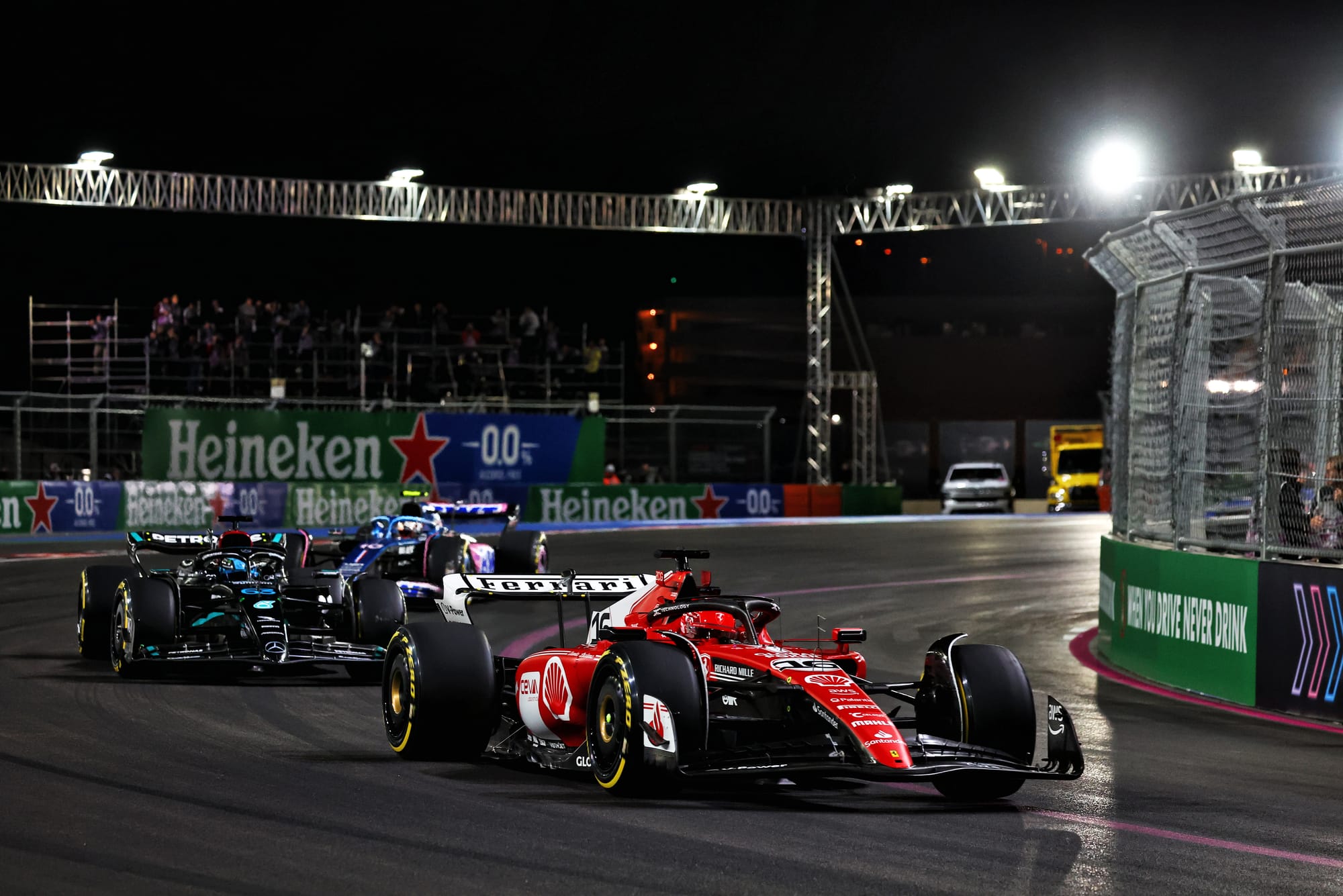
There is clear precedent from two recent incidents where a car suffered significant damage because of faults relating to the track surface.
The Baku City circuit had to reimburse Williams for the cost of the damage incurred when George Russell struck a loose drain cover in 2019.
And Haas won compensation from the Sepang circuit when the same thing happened to Romain Grosjean in Malaysia in 2017.
Ferrari will take the matter up with the Las Vegas Grand Prix, which is effectively F1 itself given the commercial rights holder is uniquely also the promoter of this event.
Between the high chance of compensation, the damage limitation of still outscoring Mercedes and the fact the stewards' frustrated verdict suggests there has to be a good prospect of regulation wording tweaks to prevent a repeat of this scenario, there are a few silver linings for Ferrari from all this.
But none of it is likely to be enough to fully satisfy Vasseur. Especially if Ferrari ends up losing its championship fight with Mercedes.


